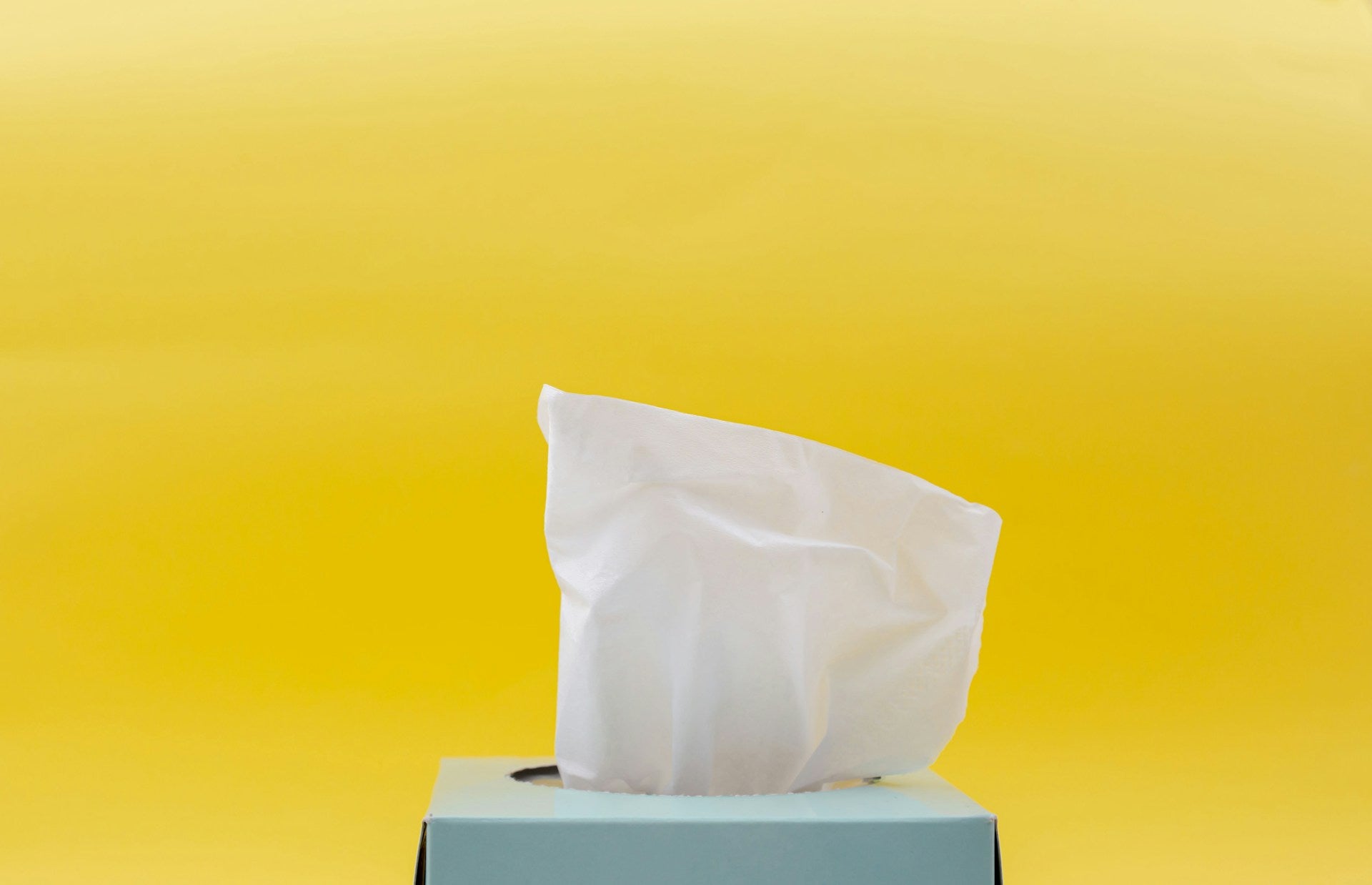Allergies, Asthma, and Eczema are all consequences of an overly aggressive immune system. Normally, your immune system defends you from disease caused by bacteria and viruses. Your immune system also detects and destroys cancer cells and other harmful disturbances in your body. Sometimes, however, your immune system misidentifies a harmless substance as toxic and attacks it.
Allergies, Asthma, and Eczema all occur when your immune system overreacts to harmless substances in your body, airways, or skin. What makes your immune system act irrationally? Progressively more evidence shows that there is a correlation between Allergies, Asthma, and Eczema, and the overuse of antibiotics.

Discovery of Antibiotics
The discovery of Penicillin by Dr. Alexander Fleming in 1928 was a breakthrough for modern medicine. Dr. Fleming left some bacterial cultures in the corner of his laboratory when he went on vacation for the summer. Upon returning, he found that a mold had grown in one of the cultures, and the bacteria in the culture had died. The mold was called Penicillium notatum and the isolated bacteria-killing substance was named Penicillin.
Penicillin became mass produced for the allied troops before World War II, saving thousands of lives from death by infectious diseases. Penicillin became widely available to the general public soon after the war. Diseases that were death sentences just a few years earlier were rendered harmless. However, over the years this medical breakthrough of antibiotics revealed a dark side.

The Hidden Consequences of Antibiotics
Beginning in the 1960s, the rates of asthma, allergies, and eczema began to rise gradually. From the 1980s there was a huge surge in their prevalence, especially in children. According to the Center for Disease Control and Prevention (CDC), from 1980 to 1995 asthma rates in children ages 5 to 14 rose 74%. Even more shocking is that in children aged 0 – 4 years, asthma rates rose by 160%. (CDC REPORT)
Currently in the U.S. approximately 50 million people suffer from some type of allergy. That’s 30% of adults and up to 40% of children. Since the 1960’s until now, we have seen a tremendous increase in the use of antibiotics not only in healthcare but in agriculture as well. There are many different kinds of antibiotics that doctors prescribe for infections caused by harmful bacteria. However, most antibiotics obliterate the healthy bacteria in your gut along with the harmful ones.
The consequences of this collateral damage are digestive and immune system issues. Antibiotics are also losing their effectiveness because bacteria can build a resistance to these drugs easily, leading to more antibiotics being developed that are stronger and more devastating to the body.
In agriculture, antibiotics are used primarily to promote “feed efficiency”. Livestock that are fed antibiotics seem to gain weight easier. Originally cows and chickens were fed antibiotics to keep them healthy and prevent infection by bacteria. But now antibiotic use is widespread mainly to boost profits. A fatter heavier cow is worth more money. The widespread use of antibiotics in agriculture has caused them to appear in our food and drink as well as in hospitals.

The prevalence of antibiotics in our society has caused our children to suffer the most. When children are developing, it’s important for them to experience the right kinds of bacteria from their environment and their food. Professor David P Strachan at the London School of Hygiene and Tropical Medicine found that the more older siblings children had, the less likely they were to suffer from allergies. (Strachan)
Dr. Strachan hypothesized that the older siblings brought in more microbes into the lives of younger siblings, training the youngsters’ immune systems to not react to these common microbes. Most children nowadays grow up in almost sterile environments, sheltered from dirt and constantly sanitized by their concerned parents. It’s becoming clearer that this overly protective behavior is actually stunting the immune systems of children.

The immune system is designed to be extremely active, learning and growing through experience. We cut out the immune system’s chances to fight when we use antibiotics, so the immune system tries to find something else to attack. Instead of recognizing that pollen and mold are harmless, the immune system treats them as dangerous germs. The sinuses become inflamed and runny, trying to flush away the bad germs. The eyes water to drown the invaders, and the throat and nose tickle to encourage coughing and sneezing. Too much inflammation caused by an overactive immune system can even cause life-threatening asthma attacks.
It’s interesting to note that this trend in the use of antibiotics and the corresponding increase in the rates of allergies is only seen in developed nations such as the United States, United Kingdom, Ireland, Australia and Canada. Allergies and asthma are significantly lower in undeveloped nations of the world where antibiotics are not easily accessible; leading many experts to believe that the rise in allergies, asthma, and eczema is directly connected to antibiotics, and more importantly the life of the bacteria that live inside of you.
The Core of Your Immune System, Your Gut
It’s been said that 70% of your immune system is located inside your gut, which refers to your small and large intestines. That’s because the biggest possible entry point into your blood stream and inside your body is through the gut. The skin is an excellent barrier that keeps everything out. But inside your gut, there are many routes of entry into your blood and to the rest of your cells. That is why a strong defense is extremely important, weeding out the bad microbes before they get a chance to enter into your body.
There’s plenty of evidence available showing that the bacteria in your gut communicate with your immune system. The good bacteria in your gut have especially been shown to regulate your immune system. Modulating the immune system depending on what kind of microbes end up there is an important part of keeping the immune system on its toes.
Usually when bacteria die and are engulfed by white blood cells, their parts are shredded and displayed for other white blood cells to take note of as being the bad guys. Having these parts ready allows the stimulation of the white blood cells and helps them to be on top of their game. Having a good balance of gut bacteria starting from a young age is extremely important to build a strong immune system that doesn’t end up attacking something harmless.
How do we know bacteria is important for the immune system? Research shows that children who suffer from allergies have higher levels of Clostridia (bad bacteria) and lower levels of Bifidobacteria and Lactobacilli (good bacteria). The opposite is true for children who don’t have allergies. (Research) It makes sense seeing how bacteria are a critical part of our immune system. So if you are suffering from allergies, asthma, or eczema, you may want to evaluate your early life, your diet, and your antibiotic intake to see if there was anything that happened to destroy the good bacteria in your gut. You may also want to look into probiotics to help replenish the good bacteria in your gut, it may make a significant difference in your life.
Some early life events that may contribute to allergies, asthma, or eczema according to news from John Hopkins Medicine:
- C-Section Birth – The baby does not travel through the Mom’s vaginal canal where good bacteria such as lactobacilli often live, limiting the exposure to good bacteria at the early stages of life.
- Strictly Formula Fed – The baby does not receive good bacteria from the Mother’s milk
- Antibiotic use in mother– If the mother had to use antibiotics shortly before or during pregnancy
- Antibiotic Use as a child– Gut flora disturbance at an early age leads to immune system consequences
Take care of yourself and your children by using probiotics and eating a healthy diet that promotes the growth of good bacteria in your gut. A very powerful strain of probiotic that we recommend is LACTOVIVA™. This bacteria strain is adept at cleaning out bad bacteria from your gut and creating an environment for good bacteria to flourish. Check it out!











